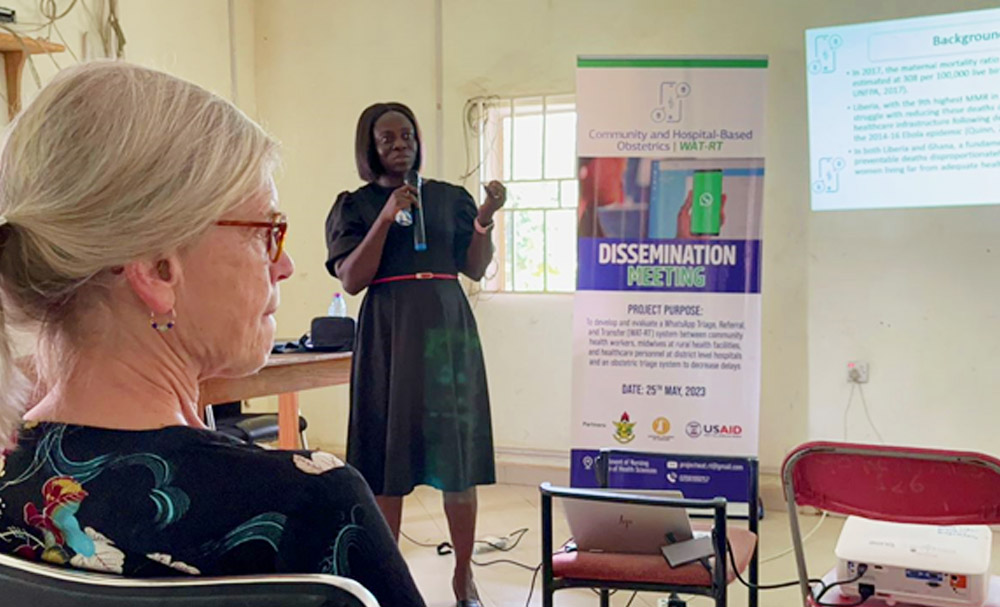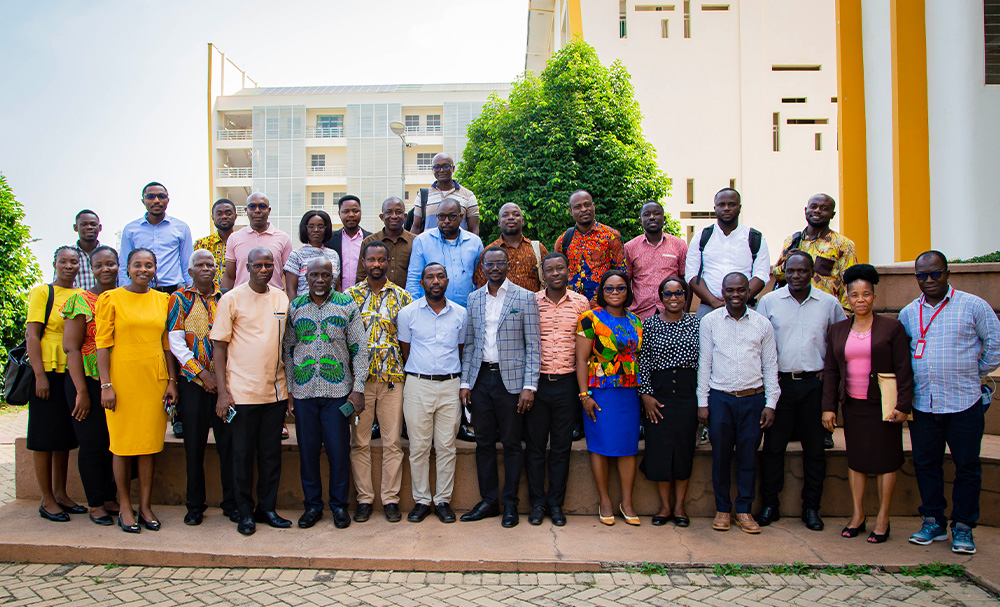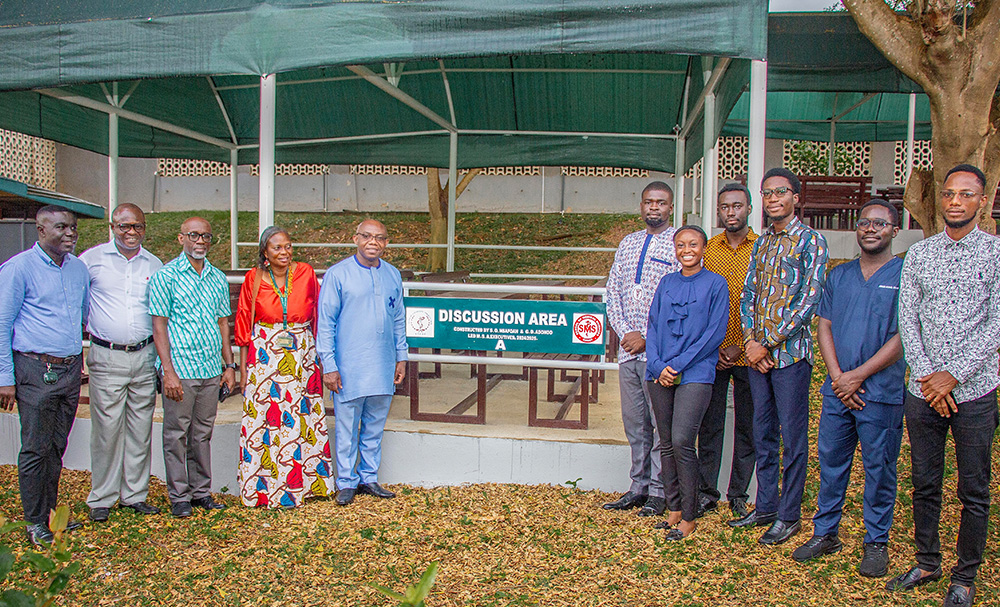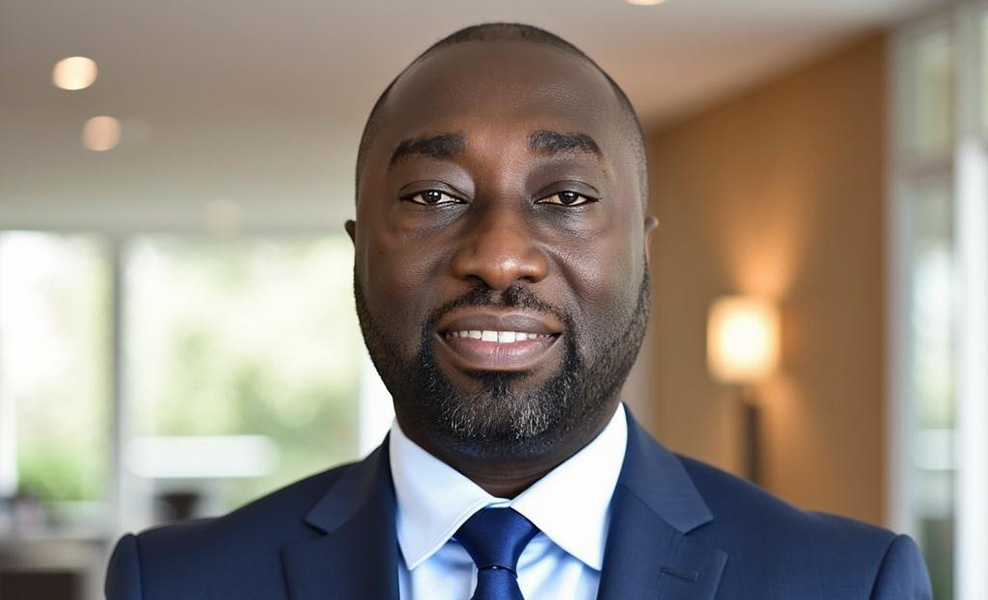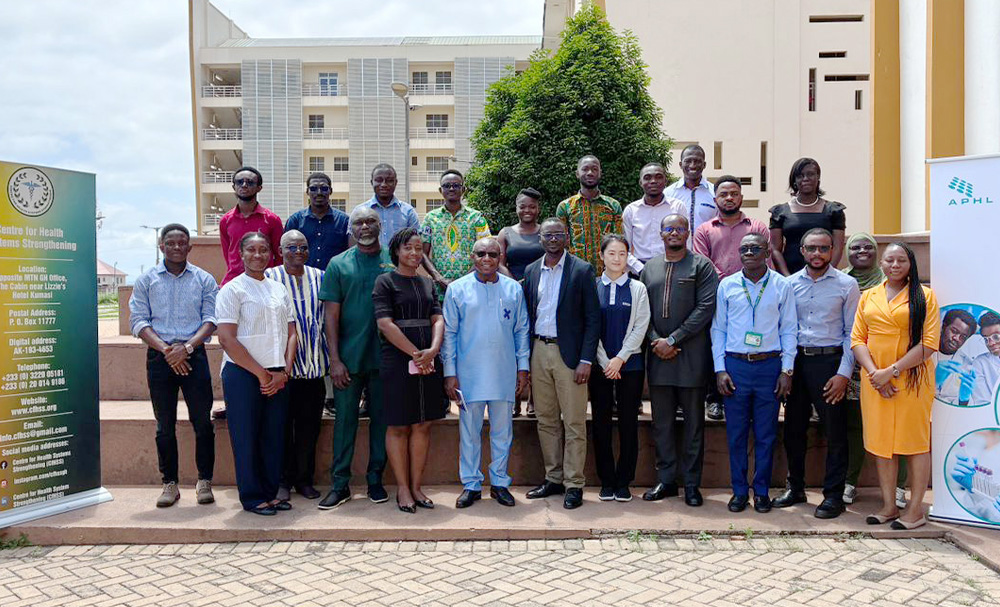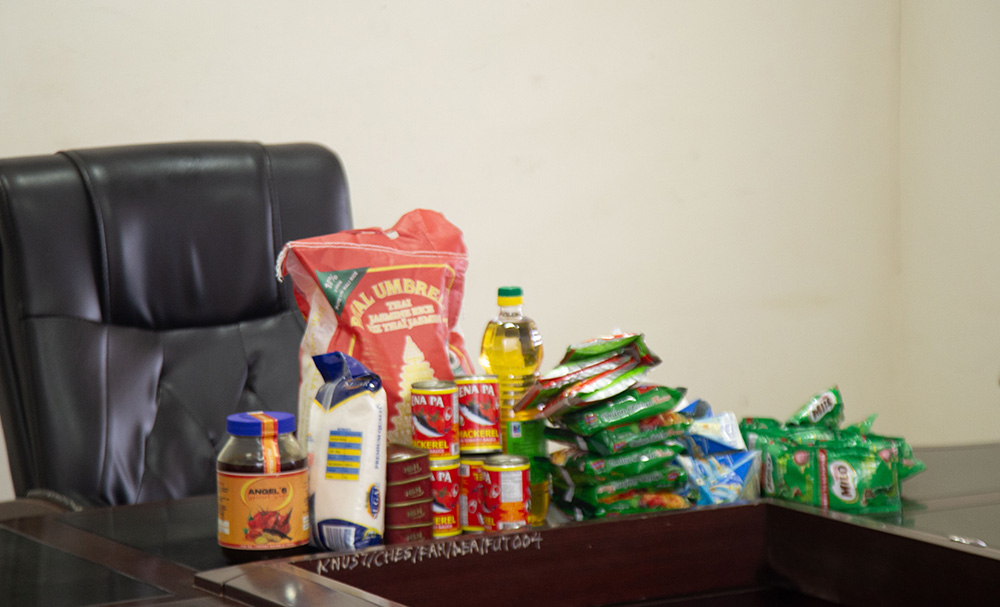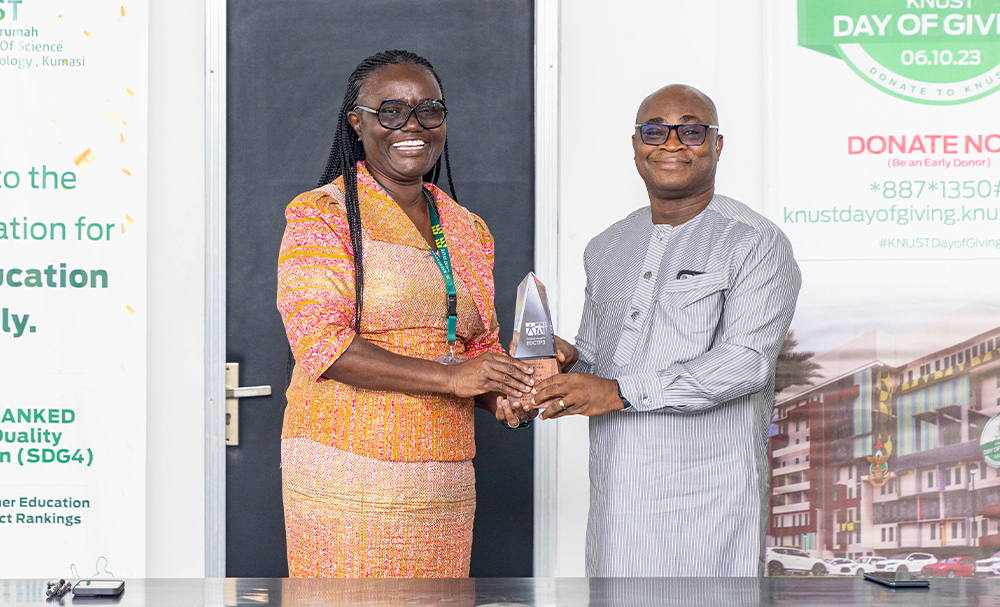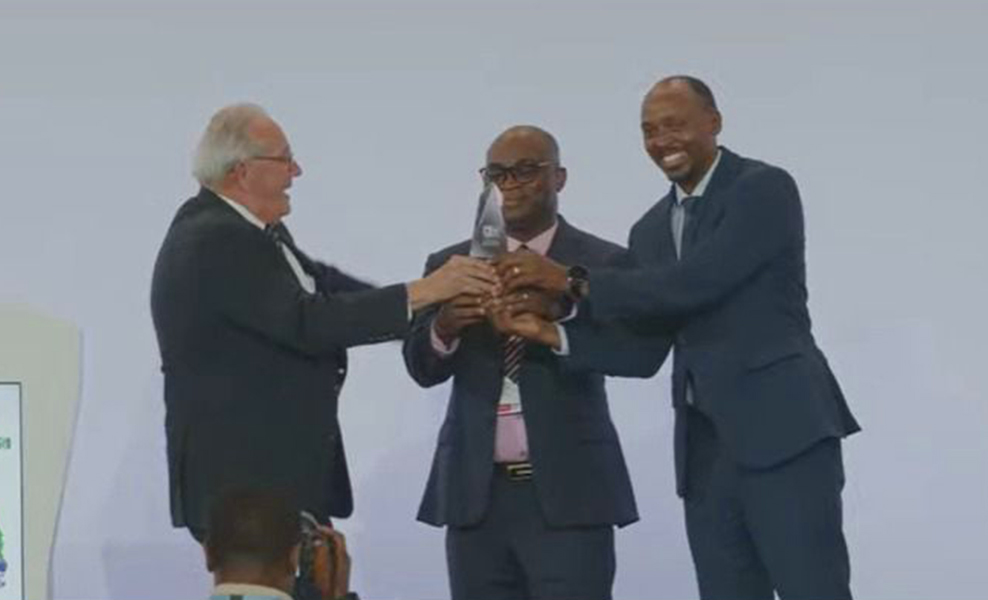A team of researchers at KNUST led by Prof Veronica Millicent Dzomeku have designed and implemented a WhatsApp Triage, Referral, and Transfer (WAT-RT) System as an intervention for managing obstetric emergencies. The two hundred thousand US Dollars (USD 200,000) project was funded by the U.S. Government through the U.S. Agency for International Development (USAID). The project was aimed at increasing timely care-seeking along the referral pathway for pregnant women through the implementation of the WAT-RT System between first-line community health workers, rural health facility midwives and district hospital staff.
The timely intervention in obstetric (OB) emergencies has been a concern for many countries including Ghana. Inadequate equipment and personnel at some facilities to handle some of these emergencies contribute to maternal morbidity and mortality. Referring patients to better-equipped facilities is sometimes the only option for low-resourced health facilities. Considering the many challenges related to patient referral which include healthcare bureaucracies, logistical incapacities and poor attitudes of service providers, the WAT-RT project introduced an effective referral system that improves communication between health facilities at different levels of care and prepares the receiving facility for a referral to avoid delays in emergencies. This system increases continuity and access to quality maternal care reducing preventable, obstetric-related deaths through information sharing and the ability to track referred clients.
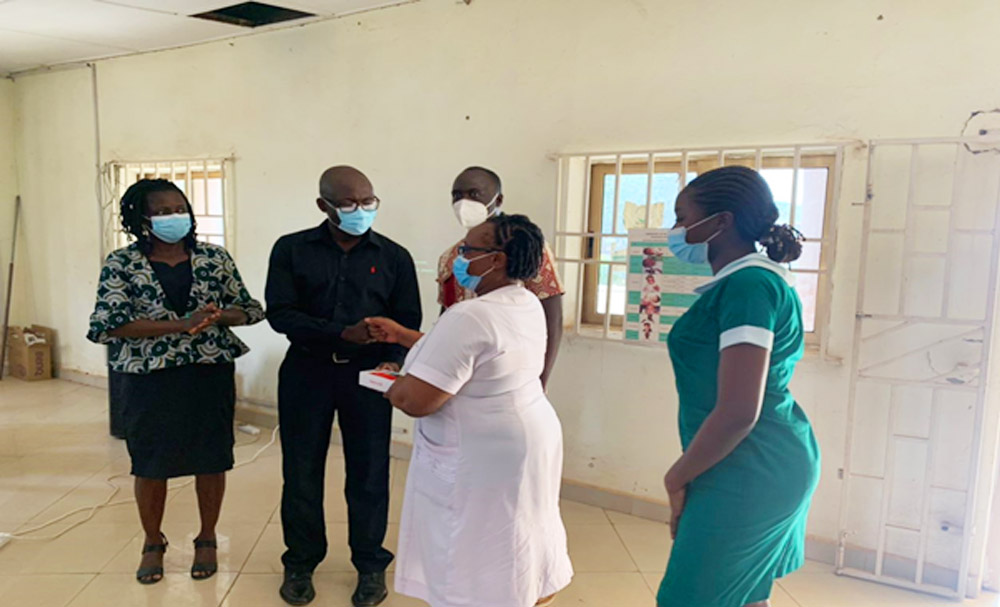
The project was implemented in 16 rural health facilities in Bono West and Bono East in the Bono region of Ghana. The team designed a user-friendly online-based triage and referral system for use at these facilities. Smartphones were assigned to each facility and data bundles were provided on a regular basis. Midwives received training on OB emergencies, triaging and effective communication with clients and colleagues. Within the past two years of implementation, a total of 306 referrals had been made using the system. Midwives and patients attested that the system was effective and had contributed to improving health outcomes.
Speaking at the project dissemination meeting which took place at the Kwame Danso District hospital, the Deputy Director of the Ghana Health Service, Dr. Anthony Ofosu and Madam Salamatu Futa the Maternal and child health program specialist from USAID charged the district directors, midwives, and the in-charges of the 16 health facilities to continue to implement this mobile health (mHealth) intervention, which he believed would contribute significantly to the improvement of maternal and child health outcomes.
The Principal Investigator, Prof Dzomeku, in her presentation, admonished the midwives to use the platform for its intended purposes and respond promptly in the interest of the sustainability of the system. She also requested the District Directors of Sene East and West to support the use of the platform by providing Wi-Fi to the midwives. Network challenge was however noted as beyond the control of the users.
The University of Liberia, under the leadership of Dr Bernice Dahn, also received part of the funding as a sub-awardee to implement similar system in the Bong County. The project in Liberia has also been successfully implemented.
The project team believed that extending the intervention to other rural communities and districts within Ghana would ensure that obstetric emergencies are handled appropriately.

